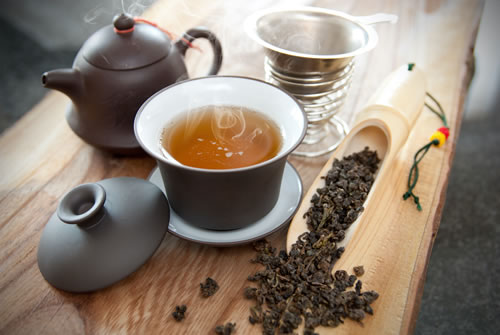GABA Tea
Posted on May 1st 2023

GABA Tea: The Modern Brew with a Neurological Nudge
Hello, intrepid tea drinkers and those always in search of the unique and beneficial!
Today, let's navigate the fascinating landscape of GABA tea. A relatively recent entrant to the world of teas, GABA stands out not just for its distinct taste but for its connection to our very neurons. Read on to discover this modern marvel of tea processing.
GABA: The Breakdown
GABA, or gamma-Aminobutyric acid, is a chief inhibitory neurotransmitter in our nervous system, vital for calming neuronal activity. GABA tea is rich in this compound, hence the name.
The Birth of GABA Tea
The story of GABA tea began in Japan in 1987 when Dr. Tsushida Tojiro and his team were researching food preservation methods under an oxygen-free environment. They discovered that when tea was processed in a nitrogen-rich, oxygen-free setting, the glutamic acid in the tea transformed into GABA.
Flavor and Character
GABA tea can be made from various tea types, including green, oolong, and black, but the most common is GABA oolong. This unique processing method imparts a distinct taste:
- Taste: Often described as sweet, with a thick mouthfeel and lingering aftertaste. Some note hints of ripe fruit or even fermented flavors.
- Color: The infusion can vary from golden-yellow to deep amber, depending on the base tea.
Potential Health Benefits
Beyond its unique taste, GABA tea is celebrated for potential health benefits:
- Neurological Well-being: As a natural source of GABA, the tea might support relaxation and stress reduction, given GABA's role in inhibiting overactive nerve responses.
- Lowering Blood Pressure: Some studies suggest that GABA intake might assist in maintaining healthy blood pressure levels.
- Mental Alertness: While research is still emerging, there's interest in GABA's potential cognitive benefits, especially when combined with the caffeine inherent in tea.
Steeping GABA Tea
To relish GABA tea:
- Water: Use water that's just below boiling, around 90°C - 95°C (194°F - 203°F).
- Tea Quantity: Use about 1-2 teaspoons for every 240 ml (8 oz) of water.
- Steeping: Allow the tea to steep for 3-5 minutes, tweaking the time based on personal preference.
A Contemporary Classic
While GABA tea doesn't have the long historical roots of some other teas, it represents the merging of traditional tea culture with modern science. As research continues, the reputation and reach of GABA tea may well expand.
Conclusion
GABA tea is a testament to the ever-evolving world of tea, where ancient traditions and modern innovations coalesce. If you're seeking a brew with a unique profile and potential neurological benefits, GABA tea is a cup worth exploring.
To the alchemy of tradition and science in our teacups!
 Loading... Please wait...
Loading... Please wait...